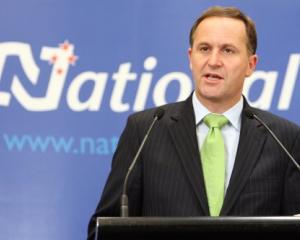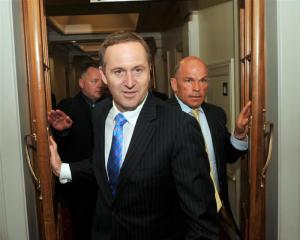New Zealand First's prospects of staying alive on Saturday aren't looking good.
Winston Peters will almost certainly fail to regain the Tauranga seat. In a poll released on Sunday, National's Simon Bridges rated 54 percent support and Mr Peters 28 percent.
Tactical voting by Labour supporters can't save him. Only 5 percent are backing Labour's candidate Anne Pankhurst, even if all of them switched to Mr Peters it isn't going to work.
NZPA's rolling poll, which averages six published surveys, puts NZ First below 3 percent in the party vote. If Mr Peters doesn't win Tauranga, it has to reach the 5 percent threshold to get any MPs into Parliament.
Mr Peters needs to pull off something really big to get there, and he's just about out of time.
He has a reason to be upset about that. Although the Serious Fraud Office and the Electoral Commission cleared his party of wrongdoing over its declaration of donations, a police inquiry hung over it until last night when an announcement was made that no charges would be laid.
Mr Peters insisted all along that no offences had been committed but he had to wait until three days before the election for that to be confirmed.
If NZ First does disappear, the political landscape changes significantly.
Mr Peters is still insisting he can work with either of the main parties, but the reality is only Labour will talk to him after the election.
National won't, its leader John Key says that every day. He has even said he would stay in Opposition rather than try to make a deal with Mr Peters.
So NZ First has to be seen as a Labour ally, and removing it from the equation means one less friend for Helen Clark when the numbers are crunched.
If early results on Saturday night show NZ First falling away, the election will turn into a straight race between National and ACT, and Labour and the Greens.
On current rolling poll results, National and ACT would win comfortably. Whatever they get, they can add Peter Dunne to the total because he is expected to retain his Ohariu seat and has committed himself to National.
The question then becomes the extent of National's lead.
If the National/ACT/Peter Dunne combination have a majority, it's all over.
The Maori Party would be irrelevant, regardless of how many seats it wins.
It holds four now, and its MPs in those seats hold commanding leaders over Labour candidates.
In the three other Maori seats the polls have turned around and Labour's MPs are ahead, but not by much.
It seems unlikely the Maori Party is going to achieve its aim of winning all seven, and that diminishes its chances of holding the balance of power.
It also reduces the extent of any overhang in the new Parliament.
There was a one seat overhang in the last Parliament because the Maori Party didn't get enough party votes to justify four seats.
If that happened again, and it won all seven, the overhang could be as high as five seats and push the total number of MPs to 126.
That would mean the winning main party combination would need 63 or 64 seats to hold a majority rather than 61 out of 120.
If the majority figure becomes 61 or 62, that would make it easier for a National-led team to get there.
Any way you look at it, taking out NZ First disadvantages Labour. - By Peter Wilson, NZPA Political Editor.







